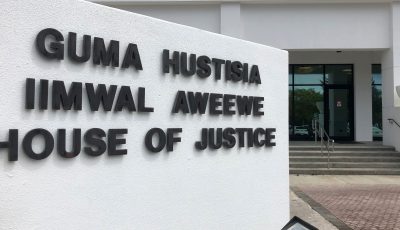Pacific police officers discuss challenges in child abuse cases
NADI, Fiji—Police officers from around the Pacific attending a training workshop on gender, violence against women and laws against gender-based violence have talked of some of the challenges of dealing with child abuse cases.
Many of these challenges had to do with lack of resources and training, as well specific legislation to deal with such cases.
One officer spoke of the challenges when it came to interviewing vulnerable witnesses, especially children in sexual assault and rape cases. Children often found it hard to open up about the attack because they feared the perpetrator or not being believed.
Interviewing child survivors of violence required time and sensitivity. Even officers in sexual offenses units would struggle to get a child survivor to open up. Discussions focused on not causing more trauma by forcing information out of child survivors. Instead some police officers refer cases to specialist organizations or counselors to help extract details of an attack.
While many challenges remain to eliminate violence against women and girls in the Pacific, the passing of legislation against gender-based violence in several Pacific countries, has helped police officers respond better.
In the Solomon Islands, for example, under the Family Protection Act which came into force in April this year, officers have the power to issue police safety notices in urgent cases or when it is not practicable to get a protection order from the court.
These police safety notices can apply for up to 21 days and protects a vulnerable person from being subjected to violence in the home.
In Samoa, police can prepare applications for protection orders although the responsibility for applying these orders has been moved to an organization dealing with violence against women.
In Fiji and Tonga some police officers have used mechanism in the law to apply by telephone for an interim domestic violence restraining order.
Officers also described the emotional impact of dealing with child sexual abuses cases. They shared similar stories about cases where the father was the perpetrator who showed little remorse about the immense damage done to young lives. In one case, the perpetrator said since the girl was his daughter he did not want any other person to “use her”, while in another country the father was reported to have said he owned his daughter because he had brought her into this world.
Another issue raised was the adoption of vulnerable children who were taken overseas. In one case, one of these girls was adopted as a five-year-old and taken to the United States were she was sexually abused before being returned to her country of birth.
Police officers said they felt helpless at times, even when they knew the risks and dangers for certain children, but were constrained by lack of empowering laws, processes or institutions.
One participant said it was frustrating to have perpetrators released by a court after they had arrested them on bench warrants after they had earlier failed to answer bail.
The two-week-long workshop held at Hexagon Hotel in Nadi is funded by the Australian Federal Police and facilitated by the Fiji Women’s Crisis Center. It ends this Friday, Nov. 18.



























